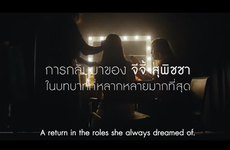
Demus' Facebook Anti-Abuse Campaign Shows How Victims Edit Their Stories
Laura McQuarrie — November 17, 2014 — Social Good
References: youtube & adsoftheworld
This anti-abuse campaign from Demus takes advantage of the ability to edit Facebook posts on social media, making a comparison to the way victims often twist their story to somehow put themselves at fault.
The 'Don't Edit, Don't Hide' campaign takes places on Demus' Facebook fan page and stars Rosita, a character who was crafted to represent women who face abuse all over the world. Rosita would purposefully leave a controversial comment on the Facebook page, instantly causing others to speak up against her statements. Those with a sharp eye would have noted that Rosita's posts were marked as "edited" and revealing the edit history to the post showed more of Rosita's unfortunate story and how she came to justify the actions her attacker took against her, such as suggesting that she was deserving of rape because she was flirting.
The 'Don't Edit, Don't Hide' campaign takes places on Demus' Facebook fan page and stars Rosita, a character who was crafted to represent women who face abuse all over the world. Rosita would purposefully leave a controversial comment on the Facebook page, instantly causing others to speak up against her statements. Those with a sharp eye would have noted that Rosita's posts were marked as "edited" and revealing the edit history to the post showed more of Rosita's unfortunate story and how she came to justify the actions her attacker took against her, such as suggesting that she was deserving of rape because she was flirting.
Trend Themes
1. Anti-abuse Awareness - Opportunities for creating campaigns that shed light on abuse and challenge victim-blaming through innovative storytelling techniques.
2. Social Media Activism - Potential for leveraging social media platforms to raise awareness, spark conversations, and promote social change around sensitive topics like abuse.
3. Digital Storytelling - Innovation in using digital platforms, such as Facebook, to present narratives that reveal the complexity of abuse stories and challenge social perceptions.
Industry Implications
1. Nonprofit Organizations - Opportunities for nonprofits to collaborate with creative agencies and leverage social media campaigns to raise awareness and drive advocacy for abuse victims.
2. Social Media Platforms - Potential for social media platforms to develop tools and resources that support anti-abuse campaigns, such as highlighting edited posts to reveal the evolution of personal narratives.
3. Creative Advertising - Room for advertising agencies to employ innovative storytelling techniques and digital platforms to create impactful campaigns that challenge societal norms and attitudes towards abuse victims.
1.9
Score
Popularity
Activity
Freshness















